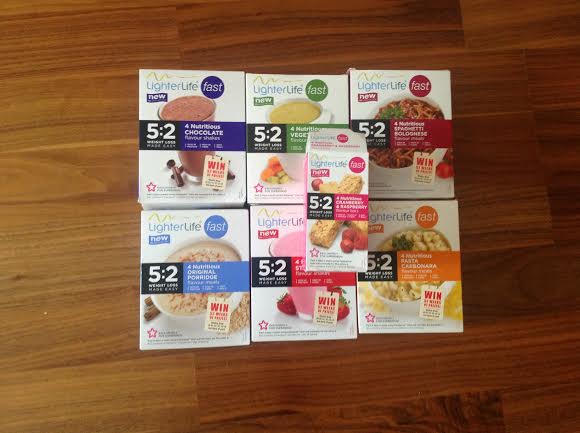 Late November I attended a very interesting event at The Ivy, Mind The Nutrient Gap: Hidden Health Risks. Apart from having lots of fun chatting to amazing journalists and eating an extraordinary lunch (I would not have expected anything less), I found out some interesting facts. many of which I found shocking. Leading dietitian Dr Carrie Ruxton, top nutrition specialist Miguel Toribio-Mateas, and regulatory expert TC Callis, all gave excellent talks and revealed exclusive research into the growing and hidden nutritional gaps in the UK and its wider impact on health.
Late November I attended a very interesting event at The Ivy, Mind The Nutrient Gap: Hidden Health Risks. Apart from having lots of fun chatting to amazing journalists and eating an extraordinary lunch (I would not have expected anything less), I found out some interesting facts. many of which I found shocking. Leading dietitian Dr Carrie Ruxton, top nutrition specialist Miguel Toribio-Mateas, and regulatory expert TC Callis, all gave excellent talks and revealed exclusive research into the growing and hidden nutritional gaps in the UK and its wider impact on health.
DID YOU KNOW?
- Almost 40% of Brits admit that they do not know what nutrients can help them to support heart health, immune health, bone health, eye health, energy, nail or hair health
- A third of Brits state that they do not have time to prepare home cooked meals
- 77.7% of Brits reveal that they do not get their five fruit and vegetables a day
- Over half of us say we don’t understand the benefits of vitamins and minerals
- Obesity figures in England have more than tripled over a period of 25 years. Over 30% of children (aged 2-15) are overweight or obese
- More than a fifth of Brits in their 40s and 50s do not know how best to adjust their eating habits to support their nutritional needs
There is some controversy on whether people should be taking vitamins but the truth is our diets are just not good enough. The evidence that some of us should take vitamins is insurmountable. We don’t all need a daily multivitamin but we all have gaps in our diet that need filled in.
The Health Supplements Information Service unveiled new research on our diets, the nutritional gap we face, and its wider impact on long-term health sorting fact from fiction. If I wasn’t convinced to take vitamins before, I certainly was after. A shocking two out of three adults don’t hit their five-a-day target of fruit and vegetables. To make matters worse, intake has actually fallen over the last four years. More than a quarter of calorie consumption comes from crisps, treats and drinks which have minimal nutritional value. Even more worryingly, 57% of people thought that children did not need to take supplements. Despite the fact that the Chief Medical Officers of England, Wales, Scotland and Northern Ireland have repeatedly reminded parents and health professionals that all children under the age of five need supplementary vitamin D unless they get a sufficient intake from fortified formula milk.
It is not just during pregnancy and childhood you need vitamins, many people start taking vitamins in their forties and fifties but by this time you can already be paying the price of a bad diet. Leading dietitian Dr Carrie Ruxton notes: “The lifestyle choices you make during your middle years are incredibly important. When you’re younger, you have resilience and are physically at your peak, but by 40-50-something years you begin to pay the price for any bad habits or nutritional shortfalls. Your nutritional needs also change, and certain nutrients, including vitamins B12 and D, calcium, potassium and fibre become increasingly important.”
The so-called sandwich generation, those ages 30-55 years, have the highest stress levels of any other age group. Sandwiched in-between their children and sick or elderly parents, they also have the early development of health problems to deal with and it is the peak time for career achievement. Women in the latter end of the spectrum also have the menopause to deal with and both genders have to maintain a home. According to Age and Ageing 2014, persistent job strain in middle age may lead to longer hospital stays later in life. Vitamins D intake is particularly important. We do not get enough sun in the UK and the evidence for vitamin D usage mounts all of the time. Dr Carrie Ruxton said that the recommended dosage was going up. Not only is vitamin D safe, it also stops infection. Women are apparently more likely to take vitamins than men and multivitamin use peaks at 30-44 years.
The truth is: our diets are just not good enough. We should eat more fruit, veg, lean red meat, low fat diary and oily fish. We should also drink healthy drinks. Any gaps should be filled in by vitamins or we will pay the price as we age. Most vitamins are safe and you would have to take a lot to overdose. Vitamin D is very safe, vitamin A becomes toxic over 3000mg, especially to pregnant women and over 5mg of copper is toxic as the body stores certain vitamins and our bodies also store minerals. It takes a lot to overdose on vitamins and keeping within the RDA and filling in our bad diet habits will pay off in the future.
What do you think?








